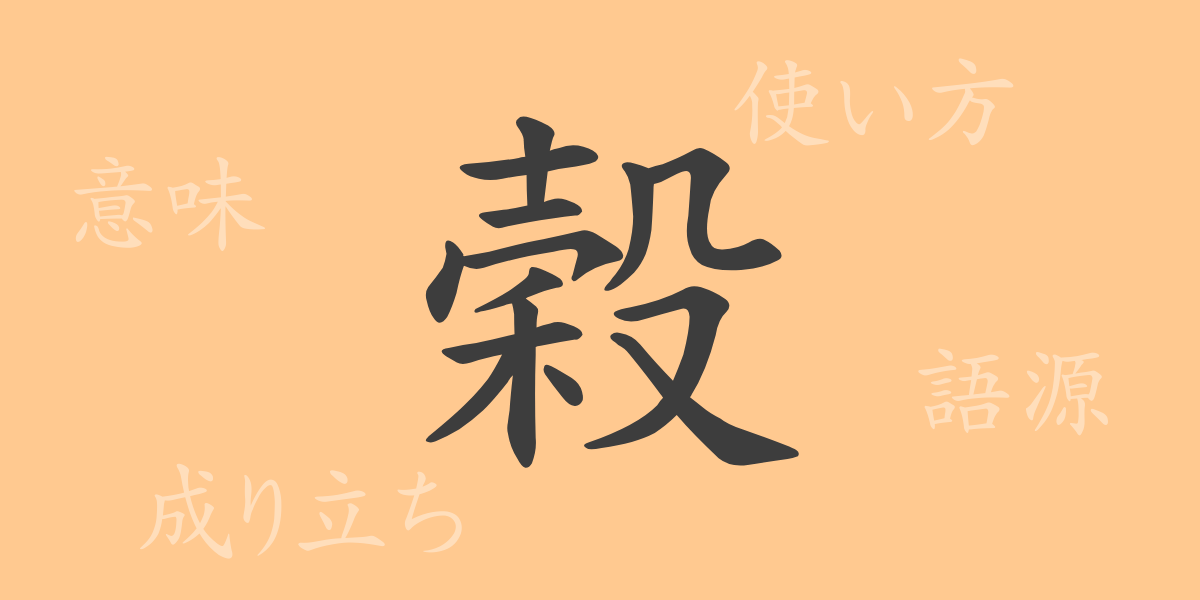Japanese written culture is deep, with kanji holding particularly rich histories and meanings. This time, we focus on the common kanji “穀” (こく, koku). From its origins to its modern usage, and including idioms and proverbs rooted in our daily lives, we will explore the world of this character.
Origins of 穀(こく, koku)
The kanji “穀” (こく, koku) has long represented an important concept related to food. This character combines “禾” (のぎ, nogi), symbolizing grain, with “殳” (しゅ, shu), meaning food. In ancient China, where agriculture was central to life, “穀” signified essential grains, symbolizing sustenance and the nurturing of life.
Meanings and Uses of 穀(こく, koku)
“穀” (こく, koku) is used to refer to grains and foodstuffs. It commonly refers to crops like rice, wheat, and beans. Given Japan’s rice-centered agricultural development, “穀” holds a significant place in food culture. Figuratively, it can also symbolize abundance and vitality.
Readings, Stroke Count, and Radical of 穀(こく, koku)
The kanji “穀” (こく, koku) has distinctive readings and structure.
- Readings: The on’yomi (音読み) is “コク” (こく, koku), and it has no kun’yomi (訓読み).
- Stroke count: 14 strokes
- Radical: The radical is 禾(のぎへん, nogihen).
Idioms, Phrases, and Proverbs Using 穀(こく, koku)
Idioms, phrases, and proverbs featuring “穀” (こく, koku) are commonly used in Japanese.
- 穀雨(こくう, kokuu): One of the twenty-four solar terms, referring to late spring and the crucial rain for crops.
- 穀物(こくもつ, kokumotsu): Refers to all grains used as food, central to the Japanese diet.
- 穀潰し(ごくつぶし, gokutsubushi): A derogatory term for someone who wastes food or resources.
Conclusion on 穀(こく, koku)
The kanji “穀” (こく, koku) has been closely tied to our lives from ancient times to the present, representing essential foodstuffs. Understanding its origins and meanings reveals the richness and vitality behind Japanese culture and language. Through idioms and proverbs involving “穀” (こく, koku), we can deepen our insight into the depth of the language and the values of Japanese life.

























